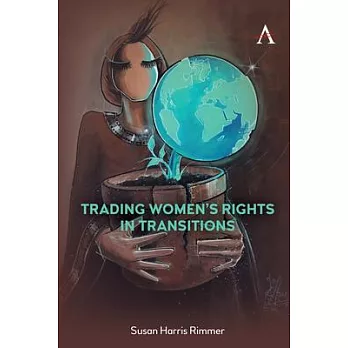Transition in international relations means moving from war to peace, dealing with an economic crisis or changing from one system of government to another. One of the key means by which this occurs is the diplomatic process of bargaining, compromising, settlement or trading. There is, however, a danger that in order to secure political objectives or preferences, negotiators or decision-makers may ’trade away’ the interests of vulnerable or emerging social forces, sometimes knowingly, more often without due appreciation of the interests at threat.
Trading Women’s Rights in Transitions is about how women’s rights are traded away by negotiators directly in exchange for immediate political or other settlements, and indirectly in terms of being left off the international agenda with long-term consequences.
The book provides a heterodox and critical view of the gender politics of transitions, focused on conflict-affected states. Susan Rimmer examines the link between negotiation processes around the globe and outcomes for social groups who struggle to gain access to power, focussing on the rights of women and girls. The struggle between actors in reformist groups can also trade away women’s rights before the agenda with international actors is agreed. The aim of this book is to assess ideas and discourse about the ’tradeability’ of a group’s rights in states experiencing a seismic transition, such as in Afghanistan or Myanmar. What does diplomacy look like ’from below’ in these situations?



 天天爆殺
天天爆殺  今日66折
今日66折 

























 博客來
博客來 博客來
博客來 博客來
博客來 博客來
博客來 博客來
博客來